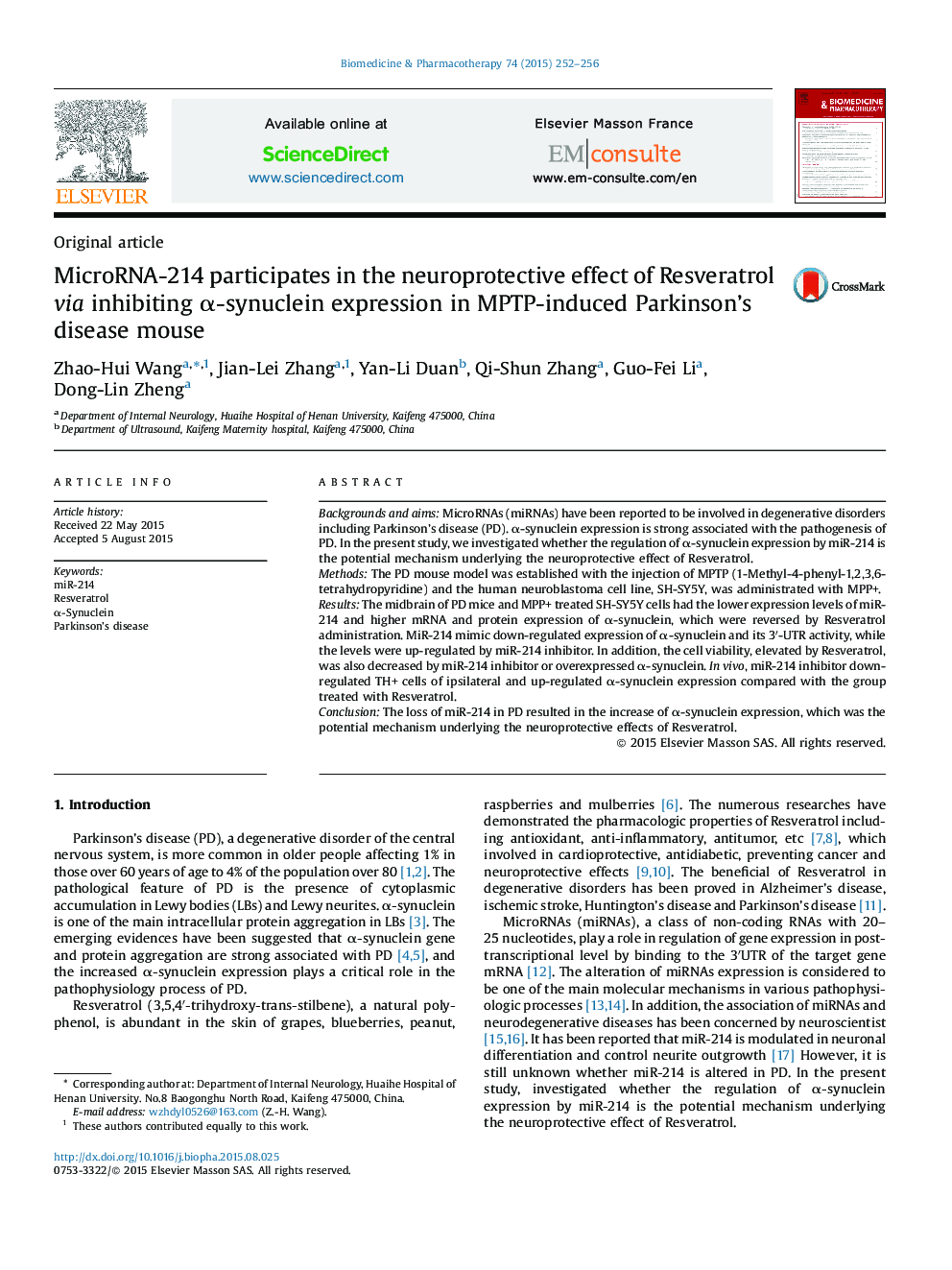| Article ID | Journal | Published Year | Pages | File Type |
|---|---|---|---|---|
| 2524971 | Biomedicine & Pharmacotherapy | 2015 | 5 Pages |
Backgrounds and aimsMicroRNAs (miRNAs) have been reported to be involved in degenerative disorders including Parkinson’s disease (PD). α-synuclein expression is strong associated with the pathogenesis of PD. In the present study, we investigated whether the regulation of α-synuclein expression by miR-214 is the potential mechanism underlying the neuroprotective effect of Resveratrol.MethodsThe PD mouse model was established with the injection of MPTP (1-Methyl-4-phenyl-1,2,3,6-tetrahydropyridine) and the human neuroblastoma cell line, SH-SY5Y, was administrated with MPP+.ResultsThe midbrain of PD mice and MPP+ treated SH-SY5Y cells had the lower expression levels of miR-214 and higher mRNA and protein expression of α-synuclein, which were reversed by Resveratrol administration. MiR-214 mimic down-regulated expression of α-synuclein and its 3′-UTR activity, while the levels were up-regulated by miR-214 inhibitor. In addition, the cell viability, elevated by Resveratrol, was also decreased by miR-214 inhibitor or overexpressed α-synuclein. In vivo, miR-214 inhibitor down-regulated TH+ cells of ipsilateral and up-regulated α-synuclein expression compared with the group treated with Resveratrol.ConclusionThe loss of miR-214 in PD resulted in the increase of α-synuclein expression, which was the potential mechanism underlying the neuroprotective effects of Resveratrol.
